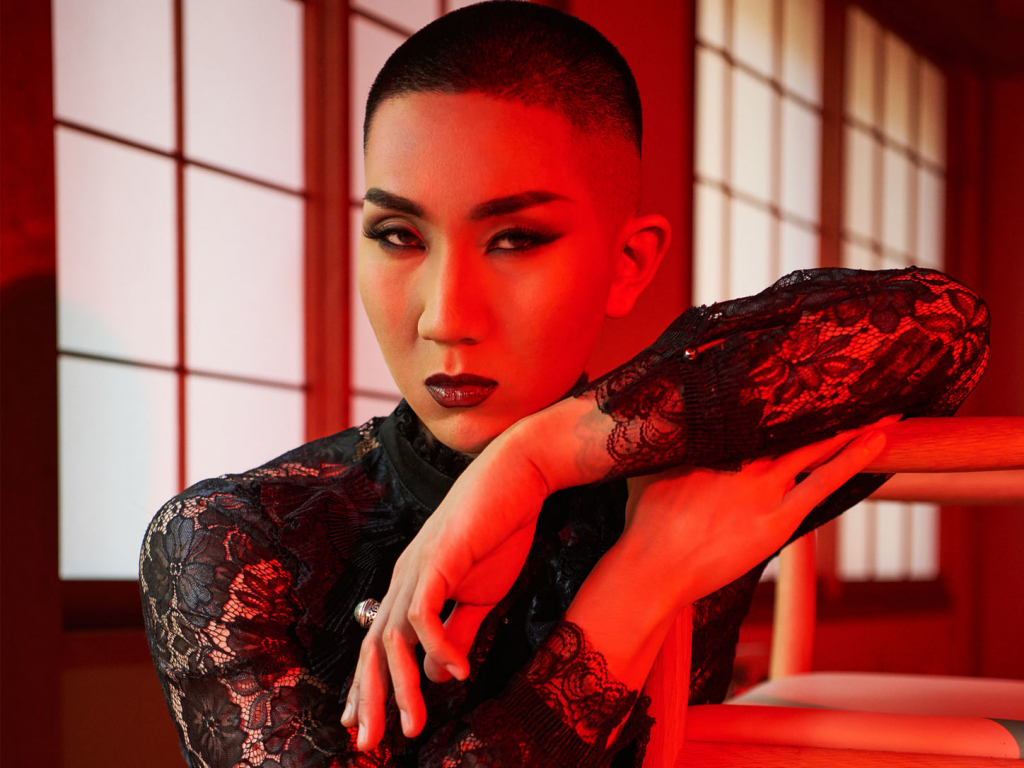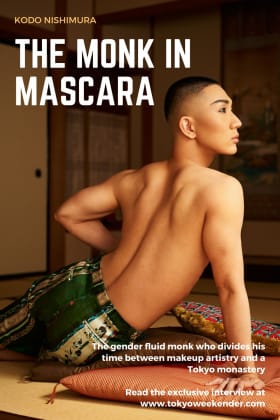Since an early age, Kodo Nishimura has considered himself gender fluid. “I am like the color purple – a combination of blue and red, of masculinity and femininity,” the ordained Buddhist monk and makeup artist explains. Despite the argument the “Monk in Mascara” often receives regarding the conflicting concepts of Buddhism and makeup – considering Buddhism’s focus on mentality and makeup’s opposing focus on physicality – Nishimura insists that both fields allow him a platform to uplift the LGBTQ+ community. Just as this community did for him.
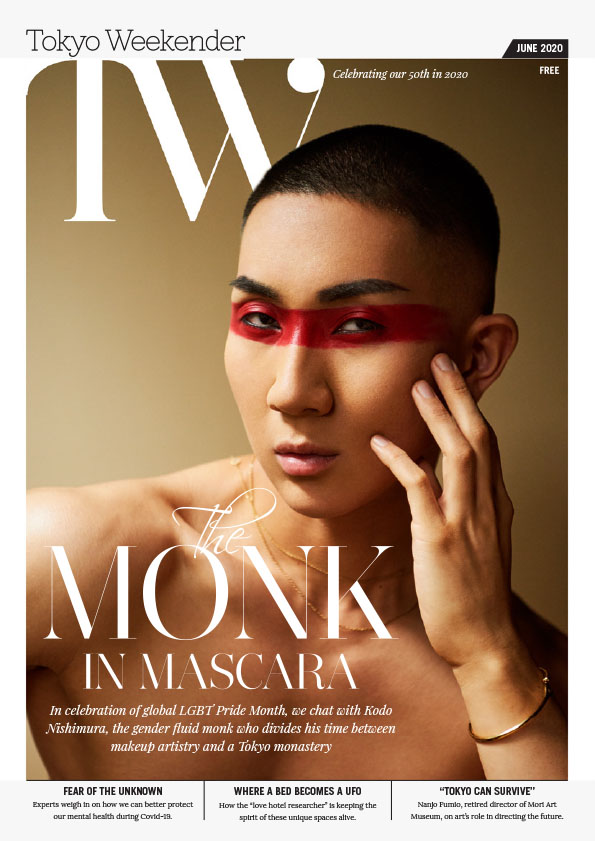
Although these days Nishimura happily divides his time between his family-owned monastery in Tokyo and working backstage at beauty pageants and television sets in New York City, life has not always been so easy to navigate. Growing up in Japan, despite the country’s conservative repute, Nishimura was not initially ashamed to express his feminine side. In kindergarten, for instance, he would teach his classmates how to role-play characters from Beauty and the Beast and Sailor Moon by having them wear one skirt on their waist and one on their head (in lieu of a wig). “I personally admired Belle and Sailor Jupiter,” Nishimura recalls of his two favorite characters, “for rebelling against gender and social norms and proving that women don’t have to be quiet and naive, but rather can be outspoken and informed!”
“The most important message of our denomination is to let people know that we can all be saved regardless of our sexuality, gender or fashion preferences.”
Once in high school, however – similarly for many LGBTQ teenagers, alas – there were fewer opportunities for Nishimura to express himself without some adversity, especially at his new school. His new classmates were not as welcoming and denied him a seat at their table. They called him hurtful, homophobic slurs. They left Nishimura with few options but to closet himself. After graduating, Nishimura moved to the United States to study fine arts at the Parsons School of Design in New York City – and to see what freedom the supposed land of the free could offer him. To his relief, he felt that Americans were “more accepting of diverse expressions.” Yet, to his discomfit, he also felt that Americans were generally “more attractive.”

Now a sexual and ethnic minority, Nishimura grew insecure about his Japanese features and, more specifically, his narrow eyes and smaller frame. His perception of Japanese beauty was soon contested, however, when Riyo Mori was crowned Miss Universe in 2007 as Japan’s representative. Nishimura noticed how her smokey-eye makeup accentuated her eyes, and was inspired to attempt a similar look. Having never worn makeup, besides, while growing up, playing with the few products that his mother kept in the bathroom, he bought his first mascara and eyeliner and taught himself how to apply it through YouTube tutorials. “A part of me broke free,” he says with a smile.
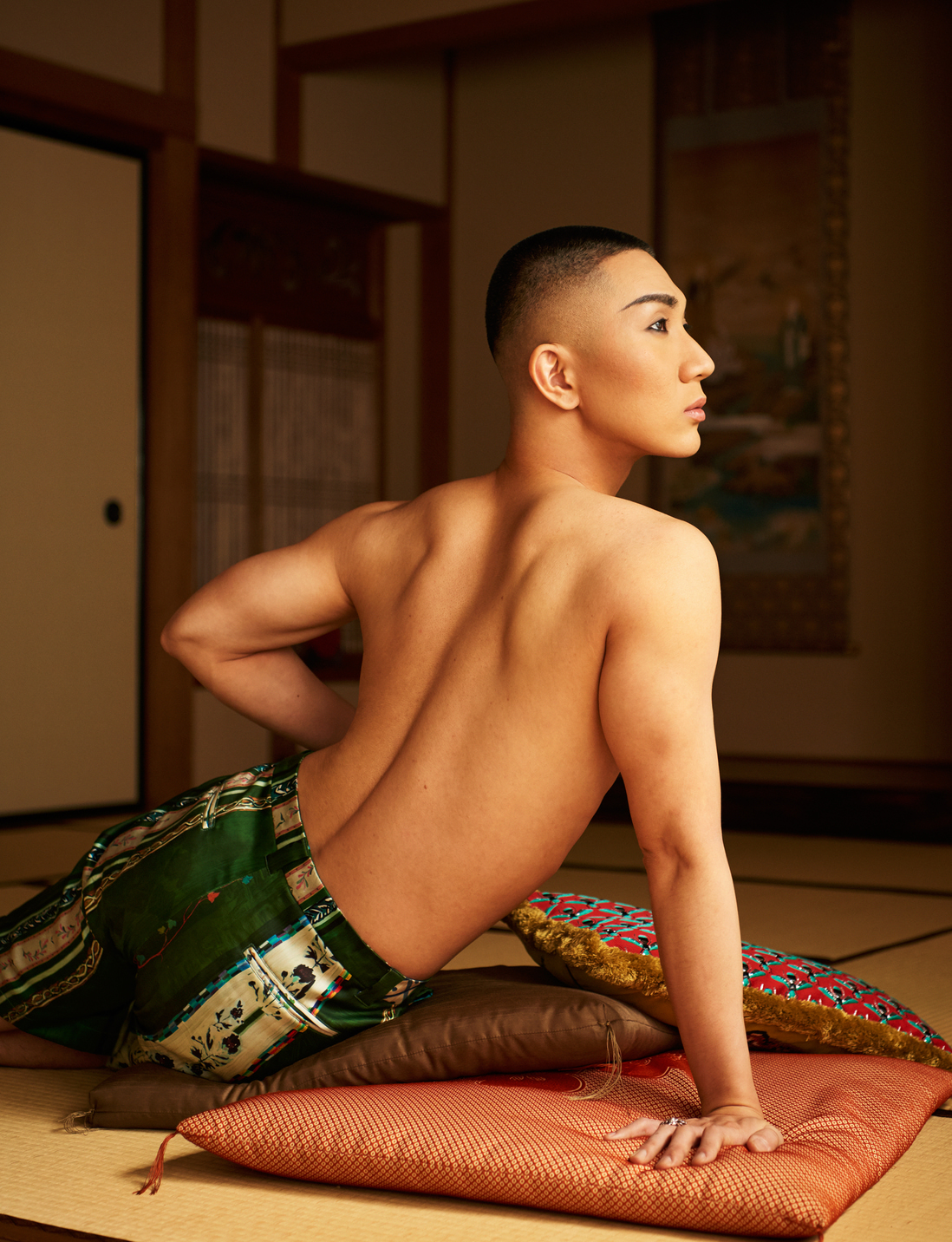
Spurred from his newfound confidence and a desire to help others feel good about themselves, too, Nishimura began interning for a locally renowned makeup artist – who had incidentally worked backstage with Mori in the 2007 Miss Universe pageant. It was a full-circle moment for Nishimura. Despite this turn of events, however, Nishimura still felt something was missing. Something beyond social status or physical appearance. Something spiritual. After attending a performance art piece about a student returning to his home in South Korea to serve in the military, he felt inspired to return to his home in Japan. In his case, to train as a Buddhist monk just as his parents had. “I realized that I needed to face my own roots,” Kodo recalls of his epiphany. “To fortify my identity and clear all doubts regarding Buddhism.”
“I took a deep breath and replied, ‘Yes, I am.’ […] What I eventually learned through Buddhism is that no one is inferior or superior to anyone else.”
For the next two years, Nishimura lived a double life: an openly gay makeup artist when he was in NYC and a closeted Buddhist monk trainee when he was in Japan. “I didn’t want the impression of other monks to be degraded because of me,” he recalls. It wasn’t until confiding in his master that Nishimura realized the futility of his concerns. His master expressed: “The most important message of our denomination [Pure Land Buddhism] is to let people know that we can all be saved regardless of our sexuality, gender or fashion preferences.”
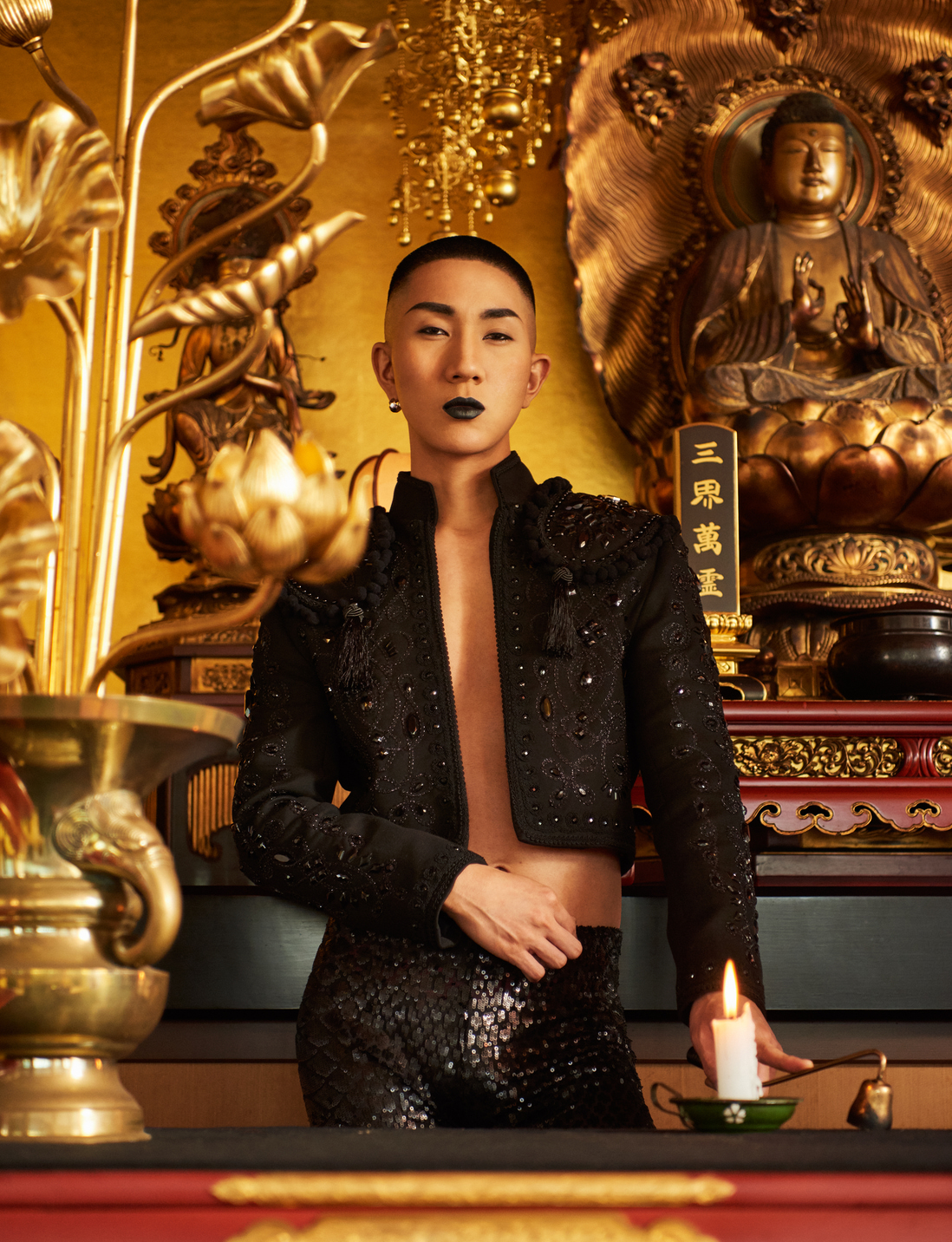
Reflecting on those times, Nishimura recalls moments of shame and embarrassment but also how he was able to overcome them and stand up for himself. “When I was training to become a monk, all of the men were required to bathe together. It was very awkward for me. One day when I was drying off, someone came up to me and said, ‘When I first saw you, I thought you were a fag.’ My face reddened as I felt like I was back in high school. Then I remembered what Buddhism and living in the United States had taught me – I remembered how many influential leaders were LGBTQ+ – and so I took a deep breath and replied, ‘Yes, I am.’ He proceeded to ask me intrusive questions about how men have sexual relationships. A friend interrupted and told him about my work as a makeup artist in New York City. Later that day, he found me and wished me luck in New York City. Despite the tension we had felt earlier in the bathroom, I was able to change his perspective.”
Since then, Nishimura has come out and shares his testimony with audiences everywhere from Yale University to the United Nations – and even on an episode of Queer Eye’s limited series in Japan, Queer Eye: We’re in Japan!
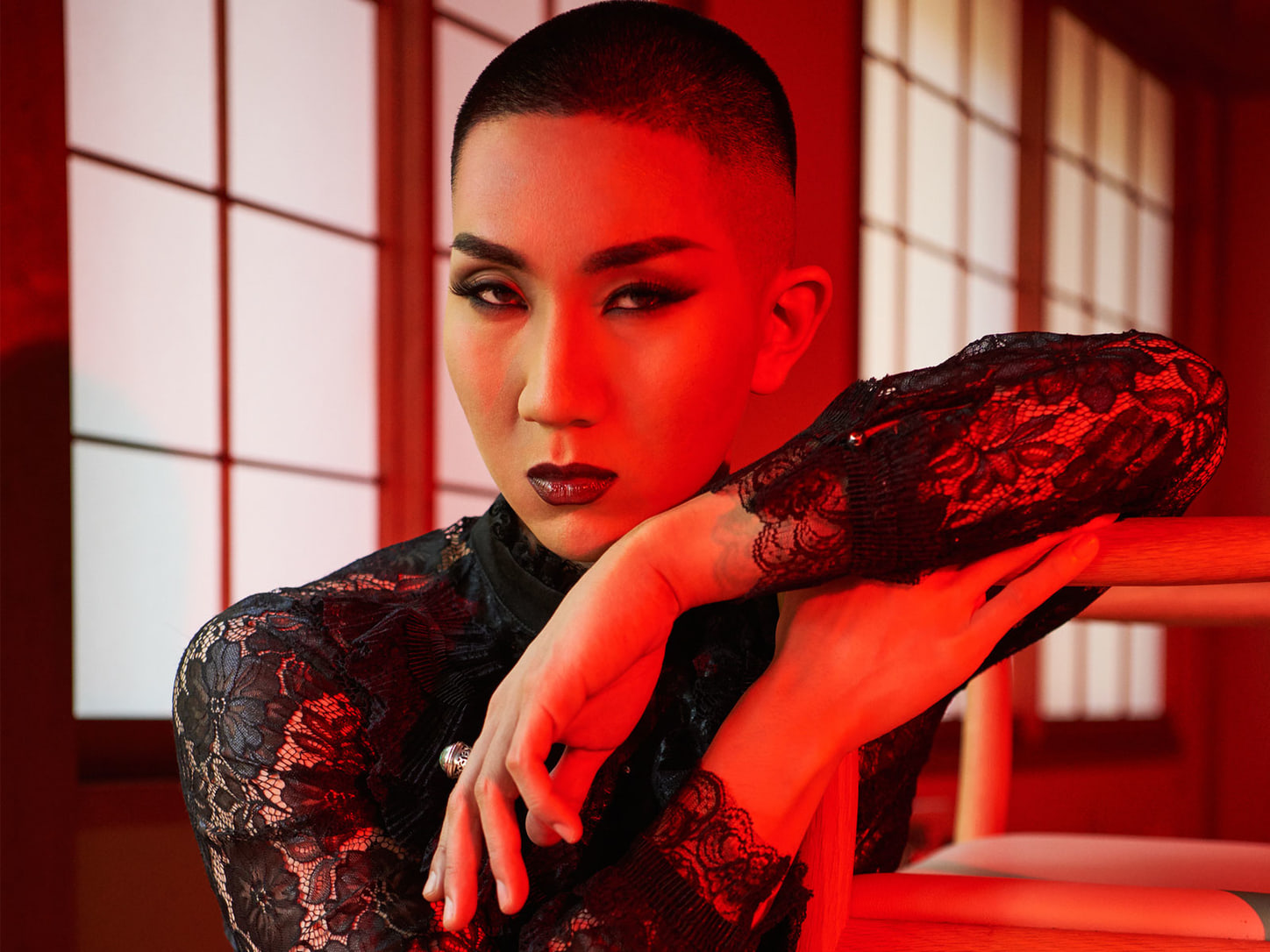
In regards to his successful career as a makeup artist, Nishimura has worked with celebrities including Christina Milian and Chloe and Halle Bailey (known as Chloe x Halle). He’s also worked backstage at six Miss Universe pageants and hosts makeup seminars for people of all sexual orientations. He is currently writing his autobiography, which is scheduled for release in Japan later this year. Eventually, he hopes to publish the book in more languages for all of his fans to read.
When asked if he has any message he’d like to share with TW readers who may be struggling with their own sexuality, self-image or discriminatory remarks, the Monk in Mascara offers the following words: “I’ve been in your shoes. I have also felt ashamed of my sexuality and self-image. But, what I eventually learned through Buddhism is that no one is inferior or superior to anyone else. There is a quote that I learned from Princess Diaries by Eleanor Roosevelt that explains this well: ‘No one can make you feel inferior without your consent.’”
To learn more about Kodo Nishimura, follow him on Instagram at @kodomakeup
Photographs by Masaki Sato

